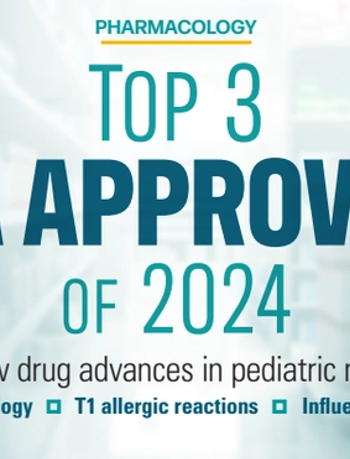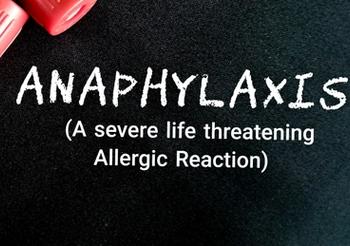
Allergy, Immunology, and ENT
Latest News

Latest Videos

CME Content
More News

Updated data from the phase 1/2 CHORD trial in 12 children with profound genetic hearing loss were presented at the Association for Research in Otolaryngology’s 48th Annual MidWinter Meeting.

A recap of the FDA submissions and regulatory decisions in pediatrics from January 2025.

Eligible schools have the opportunity to receive 2 cartons of epinephrine nasal spray for use in emergency situations to treat type I allergic reactions, including anaphylaxis.

Neffy was first approved in September 2024 to treat type 1 allergic reactions in patients who weigh at least 66 lbs (33 kg).

In an open-label extension of the EPITOPE phase 3 trial, the Viaskin Peanut patch had continued improvement in toddlers aged 1-3 years through 36 months.

Needle-free treatments, such as Neffy and FluMist, offer promising alternatives for children and adults with needle phobia, ensuring access to critical care.

From new topical dermatology treatments for atopic dermatitis to the first nasal spray to treat type 1 allergic reactions, these are our top FDA approvals of 2024.

Pharming Group N.V. plans to include these findings in worldwide regulatory filings in 2025.

Application acceptance was based on positive results with monthly and bi-monthly dosing data from a phase 3 trial.

As the authors emphasized, “Expansion of these services will be essential to meet the needs of patients experiencing food allergy-related anxiety."

The needle-free option to treat type 1 allergic reactions, including anaphylaxis, was approved for adults and children who weigh 66 lbs or more on August 9, 2024.

The landmark indication is supported by a couple of pivotal trials assessing dupilumab for patients with chronic rhinosinusitis with nasal polyps, as well as a pediatric severe asthma trial assessing the biologic.

Get caught up with our journal! Review some of the top stories from the Contemporary Pediatrics website over the last week, and catch up on anything you may have missed.

Availability for the type 1 allergic reactions treatment approved by the FDA in August is expected later this month.

The approval is indicated for adult and pediatric patients who weight at least 66 pounds (30 kilograms).

Wondering how to counsel parents on keeping their child’s immune system healthy through nutrition? Check out these clinical pearls from Colleen Sloan, PPA-C, RDN.

Get caught up with our journal! Review some of the top stories from the Contemporary Pediatrics website over the last week, and catch up on anything you may have missed.

With the expanded label, Palforzia is now approved to treat individuals aged 1 to 17 years with a confirmed peanut allergy diagnosis, after the treatment was originally approved in 4-to-17-year-olds in January 2020.

New data for FDA-approved dupilumab (Dupixent; Regeneron and Sanofi) highlights positive study results for the eosinophilic esophagitis (EoE) treatment in children aged 1 to 11 years.

Get caught up with our journal! Review some of the top stories from the Contemporary Pediatrics website over the last week, and catch up on anything you may have missed.

Prior to the federal agency's decision, children aged 5 years and older could only receive belimumab through an intravenous (IV) formulation.

Peanut consumption starting in infancy resulted in lasting tolerance into adolescence.

The federal agency has accepted the sBLA for Priority Review designation, with a target action date of September 15, 2024.

A poster session evaluated early evidence from the randomized controlled iREACH trial.

The rare genetic disease causes the body's immune system to not function properly.












